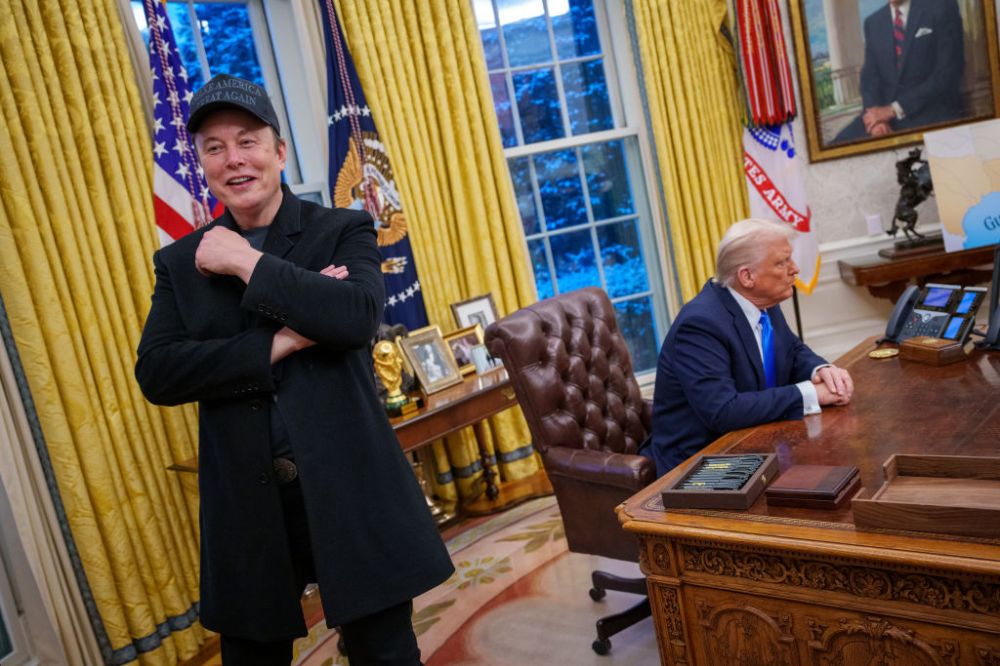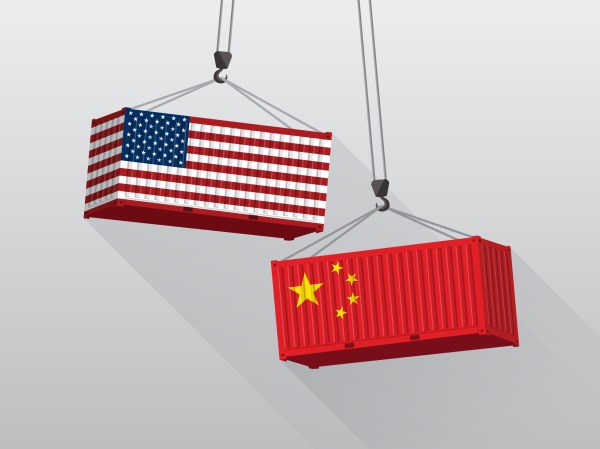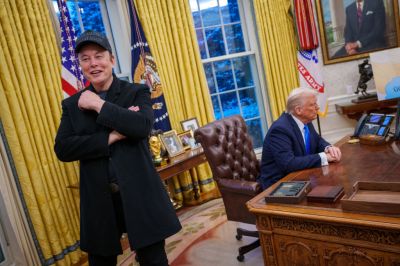Friends, it is with a heavy heart that I am writing the final edition of Techne—for now.
This newsletter will be on pause for the foreseeable future, as I need to settle my parents’ estate and won’t be able to devote the time needed to make Techne what I’d like it to be. I’ve enjoyed putting this newsletter together every week and hearing from so many of you in the comments, over email, and on social media. My work at the American Enterprise Institute will continue, as will my commentary on X. So please don’t hesitate to reach out!
I started Techne with the goal of covering tech and innovation policy. That included commentary on state AI bills, state privacy bills, autonomous cars, Google’s antitrust cases, Apple’s antitrust case, the $42.45 billion program for broadband expansion, the net neutrality debate, Nvidia and the value of compute, NASA’s canceled VIPER project, and recently, the competitive implications of DeepSeek. But I also covered topics in geoengineering, why shrubland drove LA’s fires, and the proposed dam that might have helped stop flooding from Hurricane Helene.
This newsletter has always been about more than just policy analysis. It’s been about tracking how technology, governance, and culture intersect in ways that shape our world. Before signing off, I want to reflect on where we are politically, because the changes happening now will define the policy landscape for years to come.
A Moment of Profound Change
In the first edition of Techne, I explained “Why I’m Out of Step With My Generation”:
Among my millennial friends, and even more so for Gen Z, it’s common to believe that the United States is in terminal decline. But I remain an outlier because I think the United States’ best days could still be ahead. The country faces challenges, to be sure, but we have an abundance of resources and minds to meet those challenges. In this inaugural issue of Techne, I want to explain why I’m optimistic.
My optimism in America’s resilience has shaped my perspective throughout my writing. It’s also deeply tied to my background. I’m a midwestern Protestant, born and raised in a culture traditionally dominated by Germans, giving the region its tendency to cut down the tallest poppy. But it is also a place where hard work and competence matter more than self-promotion.
Nicholas Cannariato captured this perfectly when he wrote in the New York Times Magazine,
Chicago, for ‘The Bear,’ is depicted — accurately — as a place where the goal is not necessarily to win status or acclaim so much as to create something great and original, ambitious without pretense, committed to excellence for its own sake rather than prestige or fame.
At the same time, I grew up with the internet. I’m a digital native, if that’s a meaningful cohort. We had dial-up internet when I was young, and when high-speed DSL became available, we were the first on the block to get it. My high school was an early adopter of the internet because it had been connected to a precursor network to the internet in the 1960s.
And I grew up in Springfield, Illinois, a decidedly political town that forced you to hide your political leanings, while also reading discussion forums, LessWrong posts, and the early blogosphere. In short, my politics are indelibly shaped by the digital.
Because I was there when it was all going down, I wrote a piece last July, asking, “Did Wokeness Get Its Trial Run On Tumblr?” In the 2010s, Tumblr served as an incubator for what would later be known as “woke culture.” I saw it firsthand. The open-ended structure and anonymity created a space where diverse, often marginalized communities could thrive, fostering personal storytelling and deep discussions about identity. The platform was many users’ first introduction to intersectional politics, which have since permeated mainstream discourse and shaped social and cultural debates.
Tumblr served as a bellwether at a time of a parallel development in our institutions toward the elevation of identity. DEI has become a target of the right, and for some valid reasons. Instead of fostering environments where people can thrive based on competence and contribution, our institutions are courting preferential treatment based on identity.
Writer Tracing Woodgrains’ excellent reporting on Federal Aviation Administration (FAA) hiring practices for air traffic controllers captures this tendency. As he detailed,
A scandal at the FAA has been moving on a slow-burn through the courts for a decade, culminating in the class-action lawsuit currently known as Brigida v. Buttigieg, brought by a class who spent years and thousands of dollars in coursework to become air traffic controllers, only to be dismissed by a pass-fail biographical questionnaire with a >90% fail rate, implemented without warning after many of them had already taken, and passed, a skill assessment. The questionnaire awarded points for factors like “lowest grade in high school is science,” something explicitly admitted by the FAA in a motion to deny class certification.
And then there are the stories from Aaron Sibarium and Chris Rufo on how shifting cultural paradigms are challenging established norms in education, politics, and society alike. All of this is to say there’s a shift in politics underway that is being dominated by online political conversation. The internet is reshaping political and institutional power.
I saw Tumblr users’ reaction to identity a decade ago. Likewise, we are only just now seeing those reverberations in politics today.
Disruption comes to Washington.
Trump 47 is decidedly different from Trump 45. It feels more like a first presidency than a second presidency. If 45 was about draining the swamp, 47 is about deleting its code. And it's being spearheaded by Elon Musk, who first made a name for himself in the Dot Com era.
In the last year, tech has come of age in a way. Who could have predicted that Musk would become such an important political figure? He bought Twitter, became politicized, then became the biggest donor in the election cycle. Now, in the first couple weeks of Trump 47, Elon is driving significant elements of the political conversation.
With Musk leading the Trump administration’s efforts to slash the federal workforce, disruptive tech has truly arrived in Washington, as I explored in “The Ascension of the Silicon Valley Mafia”:
These new leaders in the tech right came out of the Web 1.0 world. PayPal was sold to eBay in 2002, making Elon Musk, Peter Thiel, and [David] Sacks all major players as tech investors. Musk became the biggest political donor this election cycle, giving out $277 million, and is going to help run the new administration’s government efficiency initiative, DOGE. Meanwhile, Thiel was an early backer of Vice President-elect J.D. Vance and has gained broader influence with Trump. Add in Sacks and it is clear that the PayPal mafia has ascended politically.
Also betting big on Trump this year was [Marc] Andreessen, the creator of the Netscape browser, which was sold for $4.3 billion to AOL in 1999. He then used that money to open Andreessen Horowitz, a successful venture capital firm. If there is a through line, it’s that the leaders of the Internet Exceptionalism era are trying to reform government.
What began as cultural shifts in digital spaces have now extended into governance, with Silicon Valley figures moving from industry disruptors to central players in federal policy. In 2025, we have tech talent being directly applied to reduce the size of government. It is an important moment to mark, and Elon Musk, the world’s richest man, is playing an outsized part.
Musk deserves credit for being innovative. I don’t think anyone in the government reform movement thought about utilizing the Treasury Department’s payment system to drive reform, largely because there are so many laws against accessing and utilizing this sensitive data. As expected, courts have put a hold on what Musk’s Department of Government Efficiency (DOGE) is doing, and as expected, there have been plenty of online conniptions about these pauses.
Disruption alone is not governance. The techno-libertarian push to overhaul the federal workforce through automation, efficiency measures, and private-sector methodologies may streamline some agencies, but it could just as easily produce bureaucratic dysfunction on a grand scale. Whether DOGE ends up as a transformative project or a cautionary tale will depend on execution, and Musk has never been known for his patience with the slow-moving machinery of government.
And yet, despite my reservations, I find myself more optimistic than not. There is a generational shift underway, and for all the uncertainty of this moment, I prefer this dynamic. Energy policy, AI policy, and infrastructure are all trending in positive directions, and for the first time in years, there is a genuine conversation about technological progress rather than just regulation and risk. ‘
I think it’s important to remember: Donald Trump is a boomer, Elon Musk is Generation X, and the biggest voting block are Millennials. We are just at the beginning of this transformation.
As I close Techne, I am still left in awe of this weird network we have built. In this era of profound transition, the fusion of technology, politics, and culture presents both opportunities but also sobering challenges. What began with freewheeling experimentation online has evolved into a seismic shift in how we govern, debate, and innovate. The very tools that once connected us in digital spaces are now being used to remake the halls of power. They have ushered in a new paradigm where Silicon Valley pioneers wield influence traditionally reserved for career politicians.
For so many reasons, it is a moment of change.
Until we meet again,
🚀 Will
Notes and Quotes
- Anthropic’s Economic Index aims to provide a real-time understanding of the impact of AI systems on labor markets and productivity. The initiative’s first report offers unprecedented data from millions of anonymized conversations on Claude.ai, mapping how AI is being integrated into real-world tasks across industries. AI use is most prevalent in software development and technical writing, with over a third of occupations incorporating AI into at least a quarter of job tasks. Notably, AI is more frequently used for augmenting human work (57 percent) rather than fully automating it (43 percent), and adoption is highest among mid- to high-wage jobs like programming and data science. To encourage more research in this space, Anthropic is open-sourcing its dataset and inviting economists and policymakers to contribute insights, fostering a broader discussion on AI’s evolving role in the economy.
- A new frontier in space exploration is emerging, not in the depths of the cosmos but at the very edge of Earth’s atmosphere. A handful of companies are pioneering a new class of satellites designed to operate in Very Low Earth Orbit (VLEO)—a precarious region where atmospheric drag is high, but the potential rewards are immense. I’ve been following this industry from its early formation, so it is nice to see the BBC cover it.
- President Donald Trump has ordered his Treasury secretary to stop producing new 1-cent coins. Using AI, economist Joshua Gans was able to quickly produce a paper exploring the potential effects. The takeaway? Replacing the penny won't be much of a cost savings if we have to produce more nickels to make up for it. I’d say more work is needed, but AI systems can help us get there.
- Jason Furman, a lead economic adviser under President Barack Obama, has an extended piece in Foreign Affairs critiquing Bidenonomics: “Remember all the talk about restoring manufacturing? I never thought it was a worthwhile goal. Regardless, manufacturing employment continued to slide and industrial production was flat.”
- ChatGPT’s deep research function is winning fans. My former colleague Eli Douardo just posted this about materials used in electronics: “The number of possible materials is unimaginably vast. What are the odds that one of them is a highly efficient thermoelectric material? I asked Deep Research and it produced a banger of a paper.” Professor Taylor Sparks responds: “I did my PhD dissertation on this topic. I’m pretty blown away at how good this article is.”
- The Trump administration’s decision to put research grants on hold has cast a spotlight on the need for reform in how we fund and conduct research. Ben Reinhardt has a timely and extended essay attempting to “synthesize the current zeitgeist around universities, our research ecosystem, and technological stagnation; Argue that part of the solution unbundling the roles the university has monopolized; and Suggest concrete actions to do that.”
- In a recent post, podcast host Dwarkesh Patel works through what an AI might mean for businesses.
- If you ever wanted to know what the capital of Tenochtitlan looked liked in its heyday before the Spanish conquered Mexico City, historian Thomas Kole put together this site with some incredibly high quality maps and images.







Please note that we at The Dispatch hold ourselves, our work, and our commenters to a higher standard than other places on the internet. We welcome comments that foster genuine debate or discussion—including comments critical of us or our work—but responses that include ad hominem attacks on fellow Dispatch members or are intended to stoke fear and anger may be moderated.
With your membership, you only have the ability to comment on The Morning Dispatch articles. Consider upgrading to join the conversation everywhere.